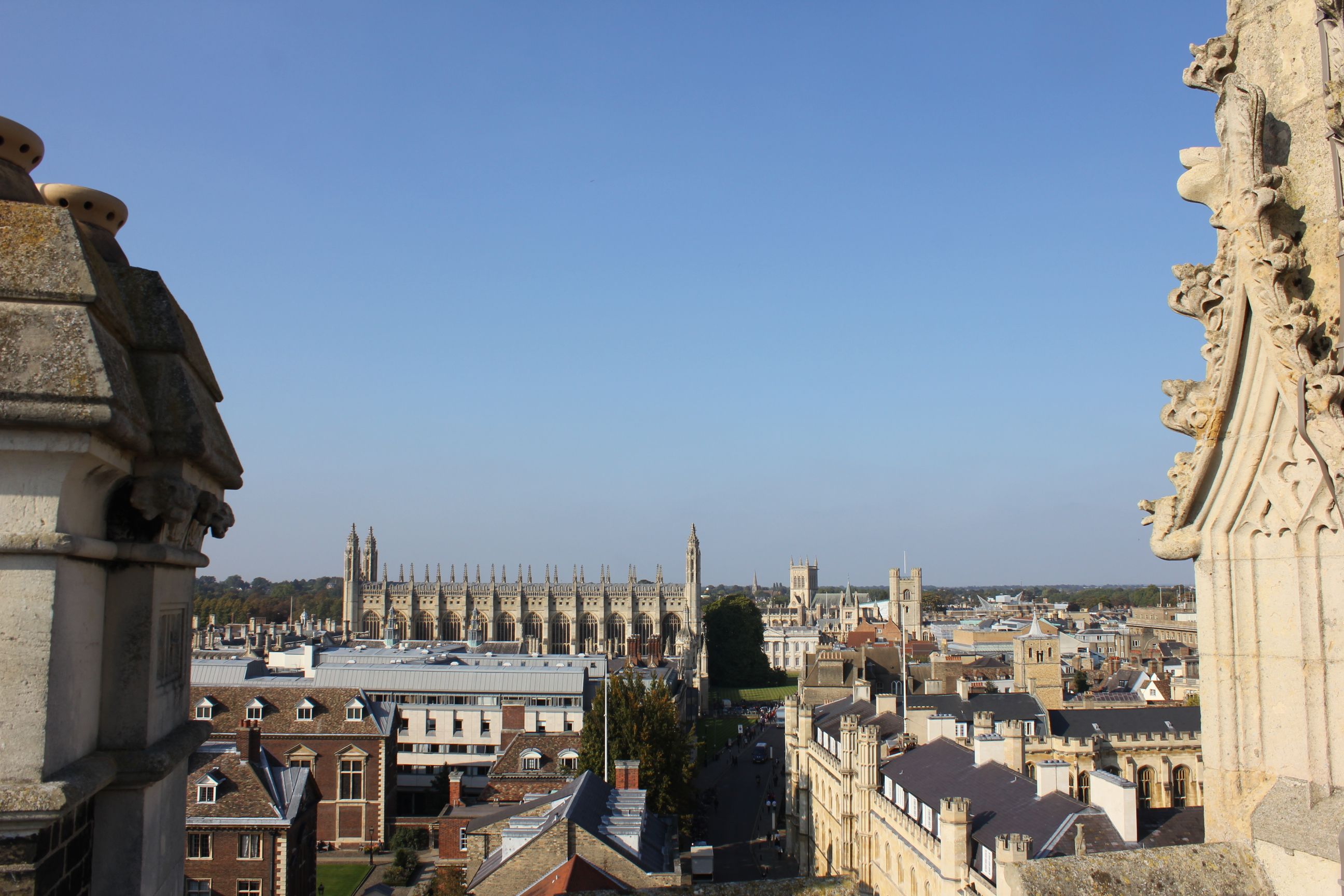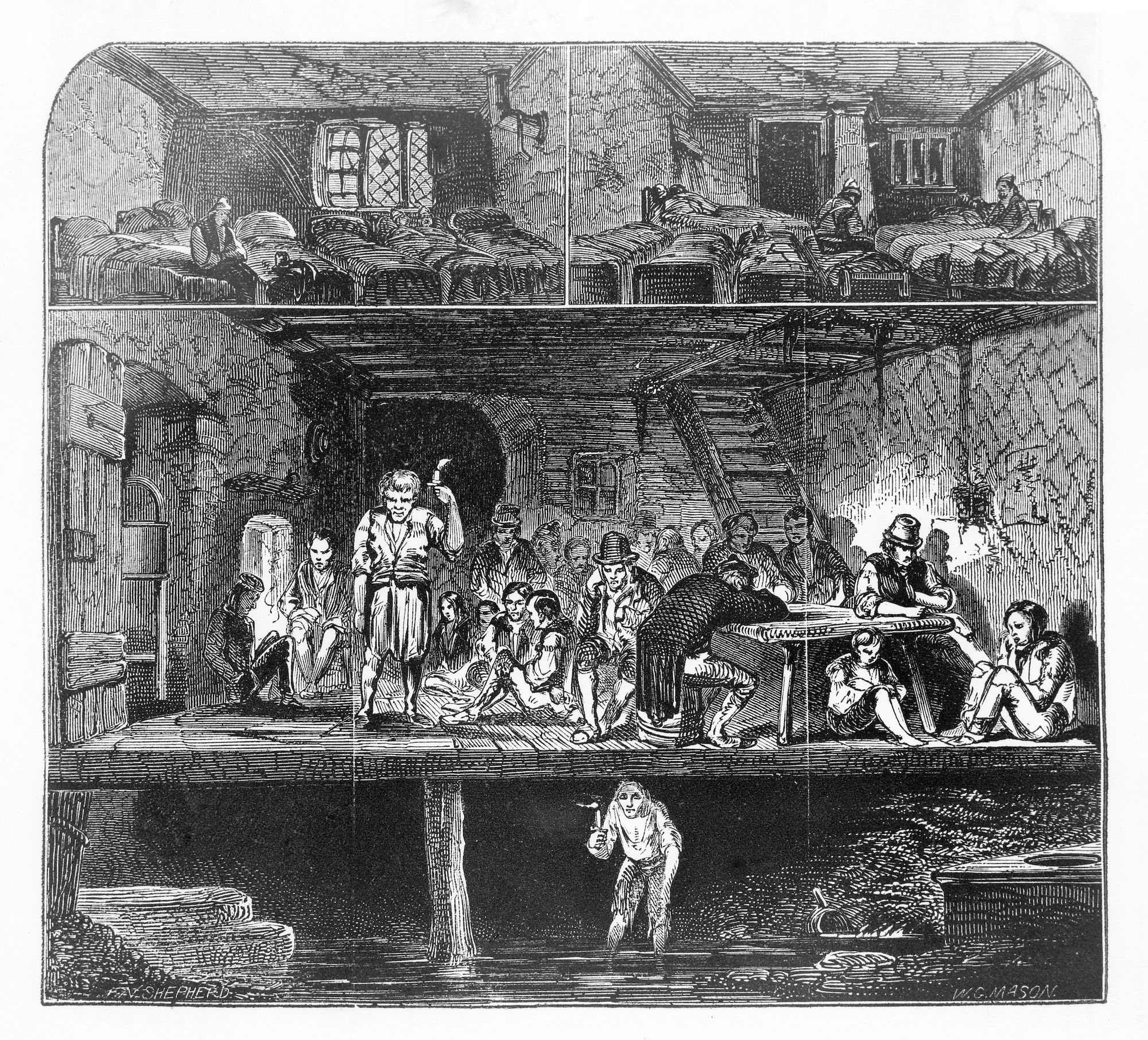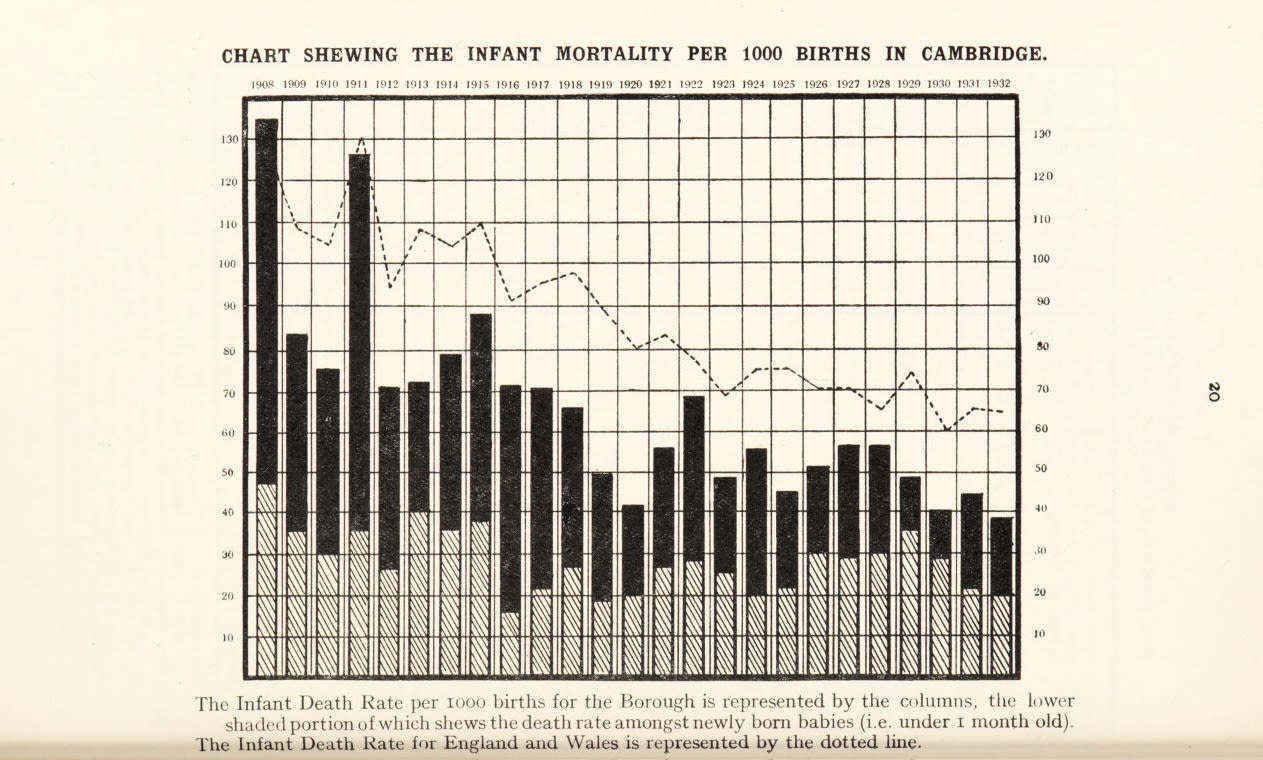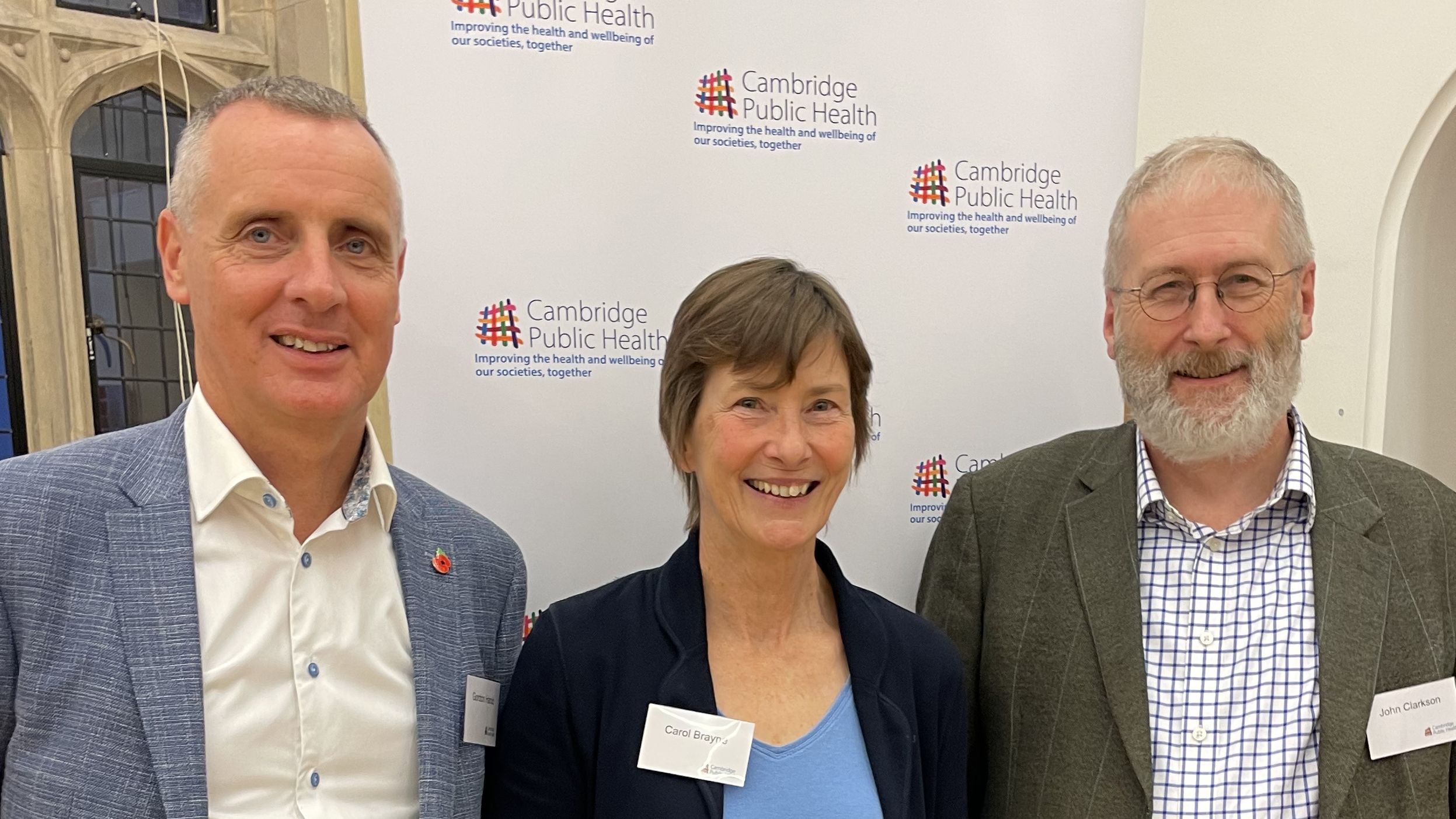Public Health at Cambridge
A timeline of research innovation, growth and achievements

Welcome to our feature on the history of public health at the University of Cambridge.
This timeline highlights key events and milestones, showcasing the university's contributions to public health through our research, teaching, capacity building and partnerships. Here, you'll discover stories of groundbreaking research, influential figures who have shaped public health, and how Cambridge continues to be a leader in the field.
Today, public health at Cambridge is a multidisciplinary effort, drawing together insights and expertise from medicine, social sciences, engineering, and areas from A (Archeology) to Z (Zoology) and beyond to address complex health challenges.
Our timeline begins in the latter half of the 19th Century, a critical period for public health awareness in the UK when people began to understand the many links between poverty, poor living conditions, life expectancy and disease occurrence. This was during a period of industralisation such that the advances in knowledge were also experienced with mechanisation, movement of workers to cities and marked inequalities, acutely captured in the fiction of the time.
To address these concerns, the government enacted a series of health acts, culminating in the landmark Public Health Act in 1875. The Act required local authorities to appoint Medical Officers of Health to tackle urban health issues.
Cambridge led the way by becoming the first university in England to offer a Diploma in Public Health (DPH) in 1875.

- 1875: Pioneering Public Health Training
England’s first Diploma in Public Health is established at Cambridge University under the directorate of George Downing Liveing, aimed at training Medical Officers in Health.
- 1904: Advancements in Tropical Medicine
The diploma in Tropical Medicine and Hygiene is established by George Nuttall in collaboration with Patrick Manson.
- 1913: Establishment of the Medical Research Committee
The Medical Research Committee, later known as the Medical Research Council (MRC), is formed to oversee national health insurance schemes and coordinate medical research funding. The MRC Biostatistics Unit (BSU) is founded to specialise in statistical research in medicine.
1875: England’s first Diploma in Public Health
Cambridge was the first university in England to introduce a Diploma in Public Health (DPH) in 1875 under the directorate of George Downing Liveing. The diploma trained the medical officers mandated by the Public Health Act, significantly advancing public health education and practice.
The Curriculum: What the Diploma Entailed
The diploma programme lasted nine months and was divided into two parts:
- General Principles: focusing on the basics of sanitary science. Students learned about air, water, soil, bacteria, and parasites, laying the groundwork for understanding disease causes and transmission.
- Practical Applications: covering municipal and domestic hygiene, including topics like sanitation, food inspection, and epidemiology. It aimed to prepare students for real-world challenges in safeguarding community health.
Public health achievements
The Diploma in Public Health was a cornerstone of public health education at the University for 57 years, from its establishment in 1875 until 1933, coinciding with the founding of the London School of Hygiene & Tropical Medicine.
During this time, over 1,600 individuals successfully completed the programme, with many graduates playing influential roles in addressing the pressing public health challenges of their time.
Professor Roy Acheson, former Head of the Department of Community Medicine at Cambridge, summarised the public health achievements made in England during this time:
“During those 57 years, infant mortality had fallen from 158 to 65 per 1000 live births, and maternal mortality had also been reduced by more than half. Cholera, smallpox, and typhoid had been contained and the impact of tuberculosis had steadily lessened.”
Chart showing the Infant Mortality per 1000 births in Cambridge between 1908 and 1932, produced by the Medical Officer of Health for Cambridge borough. Source: Wellcome Collection.
Chart showing the Infant Mortality per 1000 births in Cambridge between 1908 and 1932, produced by the Medical Officer of Health for Cambridge borough. Source: Wellcome Collection.
The MOH's 'Hints from the health deptartment'. Wellcome Collection, SA/SMO/R/4/1–19
The MOH's 'Hints from the health deptartment'. Wellcome Collection, SA/SMO/R/4/1–19
Impact and legacy - Notable people who studied the DPH
Photo by Unknown Author. Attribution 4.0 International (CC BY 4.0).
Photo by Unknown Author. Attribution 4.0 International (CC BY 4.0).
Sir George Newman, GBE KCB FRSE
(1870-1948)
Sir Newman earned his DPH in 1895 and served as Medical Officer in London, and Bedfordshire. His experience led him to publish Infant Mortality: a Social Problem in 1906. In 1919, he became the first Chief Medical Officer to the Ministry of Health in England, significantly shaping public health policy.
Photo of Ethel Williams courtesy of Wellcome Collection. Attribution 4.0 International (CC BY 4.0)
Photo of Ethel Williams courtesy of Wellcome Collection. Attribution 4.0 International (CC BY 4.0)
Dr Ethel Williams (1863-1948)
Dr Williams obtained her DPH in 1899 and became the first female doctor to establish a general medical practice in Newcastle upon Tyne in 1906. A staunch advocate for women's rights and social reform, she also helped establish the Women’s International League for Peace and Freedom, dedicating her life to advancing public health, education, and peace.
Unknown photographer, Public domain, via Wikimedia Commons
Unknown photographer, Public domain, via Wikimedia Commons
Dr Flora Murray CBE (1869-1923)
Dr Murray received her DPH from Cambridge in 1906. In 1912, she founded the Women's Hospital for Children in Northwest London. During World War I, she co-founded the Women's Hospital Corps, which operated two military hospitals in France. Murray's contributions to medicine and women's rights are commemorated on the polymer £100 banknote issued by the Bank of Scotland.
© National Portrait Gallery, London
© National Portrait Gallery, London
Sir (William) Allen Daley (1887-1969)
Sir Allen Daley earned his DPH in 1911 and went on to have a distinguished career as a Medical Officer of Health. In 1939, he was appointed Chief Medical Officer of Health for London County Council, where he managed London's health services during World War II. He also played a leading role in the establishment of the National Health Service in 1948.
- 1948: Universal Health Care
The NHS is created, providing health services free at the point of delivery, revolutionising access to health care in the UK.
- 1976: New School of Clinical Medicine
The School of Clinical Medicine at Cambridge is established, led by John Butterfield, including a new Department of Community Medicine incorporating the Department of Human Ecology.
- 1977: Community Medicine
Roy Acheson is appointed Foundation Professor of Community Medicine. Acheson creates the Health Services Research Group in collaboration with the Regional NHS Medical Director (a role held by Public Health physicians at this time). This multidisciplinary group aimed to address regional concerns of community medicine leaders.
Two NHS funded senior lecturer posts are created – Dr Tom Davies and Dr Rhys Williams who set up the Isle of Ely Study.
- 1980: The MRC Biostatistics Unit moves to the University of Cambridge, directed by Dr Ian Sutherland.
- 1984: Health and Lifestyle Survey
The Health and Lifestyle Survey (HALS) is initiated as the first representative nationwide survey in the UK, aimed at describing self-reported health, health attitudes, and beliefs about the causes of disease. Directed by Dr Brian Cox from the Department of Community Medicine, the survey collected data on lifestyle factors and socioeconomic status from over 12,000 randomly selected households. This comprehensive data collection allowed researchers to conduct follow-up studies over the following decades, enabling them to observe long-term changes.
The study paved the way for several long-running cohort studies.

- 1989: Strategic vision for public health
Nick Day, Director of the MRC Biostatistics Unit, succeeds Roy Acheson as Head of the Department of Community Medicine, introducing the vision for an Institute of Public Health uniting the University Department of Community Medicine, the MRC Biostatistics Unit and Regional NHS.
- 1989: Kay-Tee Khaw is appointed appointed Professor of Clinical Gerontology.
- 1992: Revival of public health education
1992: Diploma in Public Health is re-established – developed and coordinated by Dr Tom Davies, senior lecturer in Community Medicine.
1993: MPhil in Epidemiology developed and coordinated by Dr Carol Brayne, lecturer in Epidemiology.
- 1993: The Institute of Public Health (Cambridge Institute of Public Health) is established
1993: Institute of Public Health
The vision for the Institute of Public Health (IPH) was to create a unified institute that brought together different departments and units in the University with NHS partners to improve public health outcomes through collaborative research, education, and practice.
The IPH, later Cambridge Institute of Public Health (CIPH), was established in 1993 in the University (Statutes) as part of the School of Clinical Medicine under the government’s Minister of Health, the MRC and the Chancellor.
The initiative was spearheaded by Professor Nick Day and his colleagues, who envisioned a strategic partnership that included the Department of Community Medicine, the MRC Biostatistics Unit, and the NHS East Anglian Regional Health Authority’s (now NHS England – East of England) evidence and learning teams.
The mission of IPH was to enhance public health by conducting cutting-edge research, providing top-tier education, and conducting comprehensive analyses aimed at promoting well-being, preventing disease, and reducing health inequalities. Over time, the Institute brought in other units and research groups including the Public Health Genomics Foundation (1997), the MRC Epidemiology Unit (2003) and the MRC Human Nutrition Unit (2006).
Throughout its existence, CIPH expanded to include multiple partnerships and supported a wide range of research initiatives, many of which remain active today, or have led to ongoing initiatives.
MRC Biostatistics Unit (BSU)
Today, the Biostatistics Unit, directed by John Whittaker, is one of the largest groups of biostatisticians in Europe and is internationally renowned for its role in producing innovate statistical methods to improve public health. The Unit’s current research portfolio is organised into five main themes that span the scientific research spectrum, from basic science to population health, each responding to current scientific needs, such as carrying out critical statistical modelling during the COVID-19 pandemic.
Centre for Diet and Activity Research (CEDAR)
The Centre focused on studying the factors that influence dietary and physical activity behaviours. Established in 2008 as part of CIPH, it was one of five UK CRC-funded Centres of Excellence in Public Health which aimed to enhance academic capacity, develop infrastructure, and promote interdisciplinary collaboration in public health research across the UK. Now integrated into the MRC Epidemiology Unit, CEDAR’s research continues to inform the Unit’s work.
Cambridge Centre for Health Services Research
Set up by Professor Martin Roland in 2009, the Centre is a collaboration between researchers at the University of Cambridge and RAND Europe. It conducts research on health and social care services, organisations and systems to inform decision-making that improves the quality, cost-effectiveness and accessibility of health and care.
Behaviour and Health Research Unit
The Unit, led by Dame Theresa Marteau, was a collaboration between researchers from the University of Cambridge, RAND Europe and the University of East Anglia. The aim of the BHRU was to contribute evidence to national and international efforts to achieve sustained behaviour change that improves health outcomes and reduces health inequalities.
- 1997: Primary Care research
The General Practice and Primary Care Research Unit is established, building on the Health Services Research Group, under the direction of the University’s inaugural Professor of Primary Care – Professor Ann Louise Kinmonth.
- 1997: Genomics in Public Health
The Public Health Genomics Unit (later Foundation), established by Ron Zimmern, becomes the UK’s first centre for public health genetics, linking health research, policy and practice.
"As a member of the Cambridge Institute of Public Health, the PHG Foundation greatly benefited from the opportunities provided under Professor Carol Brayne’s leadership and support. This included participating in the Cambridge Biomedical Research Centre's research programmes and engagement with the wider public health community in the University and beyond."
- 1999: Richard Himsworth is appointed the second director of the Institute of Public Health. Carol Brayne becomes Head of Department of Community Medicine, renamed the Department of Public Health and Primary Care shortly thereafter.
- 2001: John Danesh is appointed to Professor of Epidemiology and Medicine and Head of the Department of Public Health and Primary Care.
- 2001: Awards and honours
Nick Day is appointed an OBE for services to statistics and epidemiology underpinning cancer biology, marking the first in a distinguished list of honours and awards relating to public health at the university.
Honours and awards
2001: Nick Day
Nick Day, former director of the IPH, is made a CBE for services to statistics and epidemiology in cancer biology.
2002: Ann Louise Kinmonth
Ann Louise Kinmonth, former head of the General Practice and Primary Care Research Unit (now Department of Public Health and Primary Care), is appointed a CBE for Services to Primary Care Research.
2003: Kay-Tee Khaw
Kay-Tee Khaw, a principal investigator in the EPIC-Norfolk Study, is appointed a CBE for Services to Medicine.
2003: Martin Roland
Martin Roland, former director of the Cambridge Centre for Health Services Research, recieves a CBE for services to Medicine.
2017: Carol Brayne
Carol Brayne, former director of CIPH and co-director of Cambridge Public Health, receives a CBE for services to Public Health Medicine.
2017: Dame Theresa Marteau
Dame Theresa Marteau, director of the Behaviour and Health Research Unit, is awarded a Damehood.
2023: Nick Wareham
University public health academics are ranked among the best scientists in the world by Research.com. Nicholas J. Wareham, Director of the MRC Epidemiology Unit, is ranked 4th nationally and 41st worldwide.
2024: Ann Prentice
Ann Prentice, former Director of the MRC Elsie Widdowson Laboratory (previously MRC Human Nutrition Research) awarded CBE for services to British and global public health nutrition.
2024: John Clarkson
John Clarkson, co-director of Cambridge Public Health, is awarded a CBE for Services to Engineering and Design.
- 2002: Ron Zimmern is appointed third director of the IPH.
- 2003: Epidemiology Unit
The MRC Epidemiology Unit is founded, directed by Professor Nick Wareham, becoming a member of the IPH.
- 2006: Nutritional Epidemiology
The MRC Centre for Nutritional Epidemiology in Cancer Prevention and Survival (CNC) is founded, closely associated with IPH and directed by Professor Sheila Bingham. Later, it becomes a formal member of CIPH as the MRC Centre for Human Nutrition research (later MRC Elsie Widdowson Laboratory), formed and led by Professor Ann Prentice.
- 2006: The MPhil in Public Health is established by John William Powles as a successor to the Diploma in Public Health and Master of Studies in Public Health.
Public health education
Teaching and education in public health have been an integral part of the university’s departments and centres, preparing the next generation of public health leaders through a variety of comprehensive courses. These range from undergraduate courses to advanced postgraduate studies, career development training, and fellowships.
Undergraduate education
The Department of Public Health and Primary Care at Cambridge is responsible for designing, delivering, and coordinating the public health and primary care curriculum. Each year, approximately 270 medical students benefit from these teaching themes integrated into the undergraduate Medicine course.
Postgraduate studies
Postgraduate studies at Cambridge have a rich history of catering to various specializations within public health. Historically, the Institute of Public Health offered several distinguished master’s programmes:
- MPhil in Epidemiology (1992 to 2021): Admitted 10-15 students annually.
- MPhil in Public Health (2006 to 2021): Admitted approximately 17 students annually, ranging up to 29 students in 2020. This MPhil followed the Diploma in Public Health (1992-2006).
- MPhil in Primary Care Research (a research degree): Combined taught components with research, admitting 3-5 students per year.
These programmes have laid the groundwork for a stream of distinguished graduates who have taken up leadership roles in various health systems globally.
Since 2021, the MPhil in Population Health Sciences has consolidated the three MPhils into a single, comprehensive course admitting approximately 70 students annually. This programme offers a more flexible, modular approach, allowing students to specialise in topics ranging from global health, epidemiology to public health and equipping them with the skills to tackle 21st century public health challenges.
PhD students
Doctoral education at Cambridge follows a structured path designed to foster deep expertise and research excellence. All PhD students are expected to undertake a 1-year Masters course as a precursor to a 3-year project-based doctoral programme. Currently, over 100 PhD students are actively involved in public health related research across various departments and units.
Career development
In addition to formal degree programs, the university offers various career development and fellowship opportunities aimed at nurturing future public health leaders. These initiatives provide advanced training, mentorship, and practical experience, preparing graduates for impactful careers in academia, healthcare, policymaking and beyond.
"I went through the Diploma of Public Health 25 years ago; before it became the MPhil in Population Health as it is now. As I recall, we were a small cohort of only six students, so we got to know each other and our tutors, including Tom Davies, the course organiser, very well. My main recollections of the course are the variety of topics that we covered during that year and the enormous expertise of the lecturers. Although I do also remember many hours in the Small Seminar Room in what is now the East Forvie Building and a visit to the Corn Exchange for the end of course exams!
The Diploma course gave me a superb grounding in the core public health knowledge and skills required to be a specialist in public health and allowed me to progress smoothly through the remainder of my public health training. I was one of a relatively small number completing the training programme and going straight into a Director of Public Health post; I’m sure that the thorough grounding that I received on the Diploma course was why I was able to do that."
"I have many happy memories of my year studying public health at Cambridge in 1999, when I was given a rock solid grounding in epidemiology and met friends and colleagues, including Carol Brayne, who have remained an inspiration throughout my career."
- 2007: Carol Brayne is appointed as the fourth director of the CIPH.
- 2009: Regional and national research collaborations
2009: Collaboration for Leadership in Applied Health Research and Care for Cambridgeshire and Peterborough (CLAHRC CP) is established between the University of Cambridge, the National Institute for Health Research (NIHR) and health and social care providers. It aimed to develop and conduct applied health and care research across the NHS, with a focus on mental health.
2012: CIPH is selected as a member of the NIHR School for Public Health Research - a partnership between nine leading academic centres with excellence in applied public health research in England.
2013: Links with Public Health England (PHE Academic Liaison Committee) are established.
2019: NIHR Applied Research Collaboration (ARC) East of England is established with CIPH playing a key role in initiating and leading the collaboration, progressing from a Cambridge focus in CLAHRC to a regional one. Now led by Hertfordshire University with a public health professor as director, Cambridge has led themes in Public Health, Dementia, Frailty and End of Life, Population Evidence, and Data Science, and maintained strong engagement with senior colleagues from public health service (OHID).
- 2013: Multidisciplinary public health network
PublicHealth@Cambridge Strategic Research Network is formed to facilitate connections among researchers, break down traditional barriers, and to encourage new interactions and perspectives to address challenges in population health.
- 2014: Health Inequalities
The St John’s College Reading Group on Health Inequalities is established by Professor Ann Louise Kinmonth and Professor Mike Kelly to explore mechanisms of health inequalities.
- 2016: Public Health leadership
The Dennis and Mireille Gillings Fellowships in Global Public Health Leadership are launched, providing post-doctoral fellows with leadership skills and coaching.
Gillings Fellowship in Global Public Health
Andres Roman-Urrestarazu, Gillings Fellow in Autism Research and Global Public Health (2016-2020)
"The impact of the Gillings Fellowship on my career and ambitions has been profound. The opportunity allowed me to explore and develop leadership skills, and to expand my horizons and professional network beyond my original home of psychiatry and mental health research.
The fellowship equipped me with a unique set of skills and perspectives, which have proven indispensable in my subsequent roles and research endeavours. It fostered a deeper understanding of methodological rigor and the importance of evidence-based policy making, which are now cornerstone principles in my approach to research.
One of the most valuable aspects of my time at CIPH was the development of my analytical and research skills. Learning to design, conduct, and interpret complex research studies with precision and ethical consideration was immensely rewarding. Additionally, the collaborative environment at CIPH encouraged a multidisciplinary approach, which enhanced my ability to integrate different fields of knowledge and methodologies into cohesive public health strategies.
Working with Carol Brayne was particularly influential. Her mentorship was invaluable; she exemplified the balance of rigorous scientific inquiry with a deep commitment to public service. From her, I learned the importance of persistence and precision in research, as well as the need to always consider the broader impact of one’s work on public health outcomes and policy. Carol's influence was instrumental in shaping my career trajectory, embedding a deep-rooted passion for academic rigour and a commitment to public health advocacy."
- 2018: THIS Institute is launched, directed by Professor Mary Dixon-Woods focusing on healthcare improvement research.
- 2020: East of England Population Health Research Hub is launched.
- 2020: CIPH is disestablished. Cambridge Public Health is launched.
2020
Cambridge Public Health

Cambridge Public Health (CPH) was launched in 2020 as an Interdisciplinary Research Centre, bringing together elements of CIPH and the PublicHealth@Cambridge Strategic Research Network. CPH unites over 600 researchers and professionals dedicated to addressing critical public health issues from across the university.
The leadership of CPH is drawn from three out of the university's six schools: Professor Carol Brayne (Clinical Medicine), Professor John Clarkson (Technology), and Professor Gordon Harold (Humanities and Social Sciences) – reflecting the centre’s broad and inclusive approach to public health.
Co-directers at Cambridge Public Health showcase event in November 2023
Co-directers at Cambridge Public Health showcase event in November 2023
The Centre focuses on addressing 21st century public health challenges and improving health and wellbeing in our societies, closely aligning with the UN’s Sustainable Development Goals and meeting the public health needs of the UK in a rapidly changing world. Its vision is to be the face of Cambridge’s collective efforts in public health, driving impactful multidisciplinary research and influencing health policy and practice locally, nationally and globally.
The centre’s activities are structured around five public health research pillars, led by researchers at different career stages: Life-course and Ageing, Health Inequalities, Global Health, Sustainability and Public Mental Health. Five further cross-cutting themes offer different approaches to examining the pillars and support the many intersections of interdisciplinarity.
- 2021: MPhil in Population Health Sciences
The MPhil in Population Health Sciences is established, integrating previous MPhils in Primary Care Research, Public Health and Epidemiology into multistream modular format.
Managed jointly by the Department of Public Health and Primary Care, the MRC Epidemiology Unit, and the MRC Biostatistics Unit, the programme provides access to leading scholars and resources. Students benefit from a modular curriculum, that allows for both full-time and part-time studies, fostering a comprehensive understanding of population health sciences.
Ultimately, the MPhil in Population Health Sciences aims to nurture future leaders in population health, poised to drive positive change in academic, practice, and other settings.




















